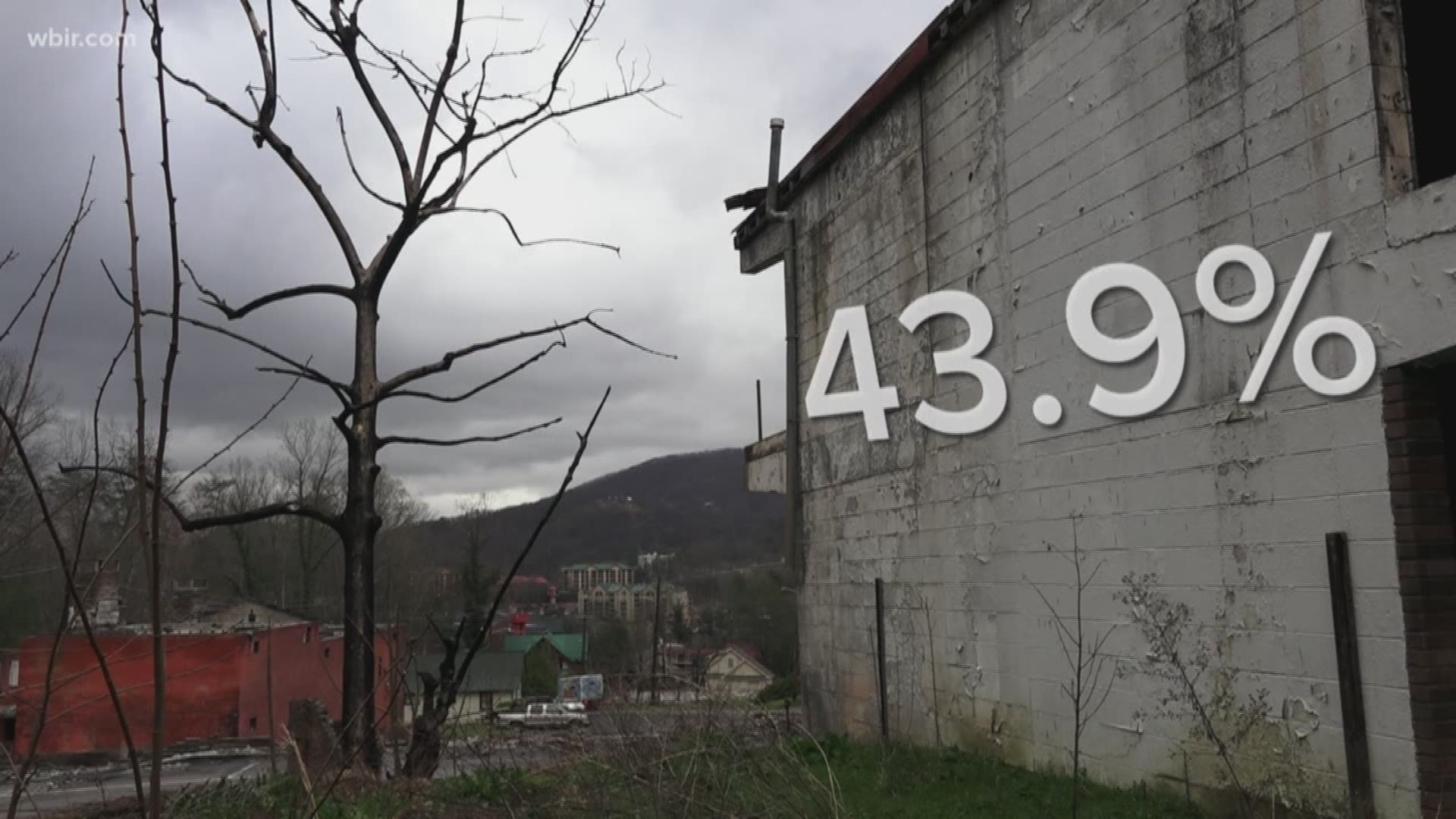SEVIER COUNTY — Melissa Cordero makes an hour-long commute from Knoxville to Gatlinburg to get to work by 7 a.m. six days a week.
She's the manager of Old Dad's General Store, but she lives in Strawberry Plains for the cheaper rent.
“If you’re going to rent a two bedroom house for example, I’ve not heard of anything less than $600 a month, so way too high," she said of Gatlinburg's available housing.
Cordero is just one of the 43.9 percent of Sevier County workers who live outside the county, according to a recent study commissioned by Sevier County's Economic Development Council to address the county's housing deficit.
The study revealed a slew of staggering statistics. The county is short 1,500 to 2,000 affordable housing units, the housing market is 99.3 percent full and nearly 44 percent of county workers do not live in the county, according to the study.
The lives affected
Cordero said some of her employees live in hotels during the week to be closer to work.
“It’s just a room with a bathroom. They don’t have a kitchen. They might have a microwave or a skillet to be able to cook, but most of them don’t," she said. "And the cheapest that I know, so far, is $165 a week for a room with a bathroom and a bed."
Cordero's boss, Shannon Patterson, owns Old Dad's General Store. He says the lack of affordable housing in recent years has made hiring employees increasingly difficult.
“Gatlinburg’s biggest problem is housing. My biggest problem as an employer is housing," Patterson said.
All but two of his employees live outside Gatlinburg. None of them live close enough to walk to work.
“When they have to drive an hour to get here and an hour to go home and you have to work them 50 to 60 hours a week because you can’t find employees up here, it creates an issue," Patterson said.
One employee at Old Dad's, Amanda Thornton, is the exception. She managed to find an affordable, convenient place to live not far from Gatlinburg's strip, but she said it took time and sacrifice to find it.
“I lived in my car for three months before I got this place because I refused to go to one of these other locations," Thorton said. “I’ve lived in some of those other places and you couldn't force me to go back.”
Thornton said her landlords and rent make living in Gatlinburg a feasible option for her, but most people she knows are not as lucky.
“Most people are dealing with anywhere from $165 to $225 a week. Me, I’m not going to lie, I pay $175," she said. “We need more family oriented affordable housing in Gatlinburg that’s close enough for people to walk to work so they can make the money to pay for these.”
Thornton, Patterson and Cordero all say the housing problem was an issue before the November 2016 wildfires that only got worse after. The numbers verify that.
“And after the fires, we’ve needed housing more than ever," Patterson said.
Housing by the numbers
After the devastating wildfires in November 2016, Sevier County ECD contracted the study to address the housing deficit. The study found that 2,500 buildings were destroyed by the fires. Of those buildings, 2,449 were residential properties.
“We had a lot of permanent residents and permanent renters here whose homes were destroyed," Sevier County Mayor Larry Waters said.
The county commissioned study showed from 2009 to 2014, less than 100 affordable family units were built annually.
“From 2000 to 2010, we were one of the fastest growing counties in Tennessee, and I think because we had this housing shortage, we’ve leveled off," Waters said.
“And because our economy is so robust we need to have folks that live and work here and in order to do that we have to have housing that these folks can live in and afford," he said.
Working on solutions
The county is trying to incentivize developers to help meet the need with options like a 10-year freeze on taxes, commercialized ground floor options and reduced land cost. The study also found part of the problem stemmed from developers rejecting the idea of buying land priced at high tourism values and then renting based on low-income wages.
“We realize it’s a difficult thing for them to do to come in and guarantee an affordable rent, so they need some encouragement and some incentive to do that, and that’s what we’re trying to balance and what we’re all trying to do," Waters said.
“We’re encouraging developers to come in and build workforce housing," said Allen Newton, executive director of the Sevier County ECD. "We have 6 developers who are interested in building workforce housing so we will be accepting their bids soon.”
The bids are due May 4, but the project is far from completion. Estimates set construction for the 4th quarter of 2018, and completion 12 to 18 months away.
“The best case scenario is all of these units come online in the next 12 to 18 months and we have affordable housing for a number of folks to come in and work in our industries," Waters said.


